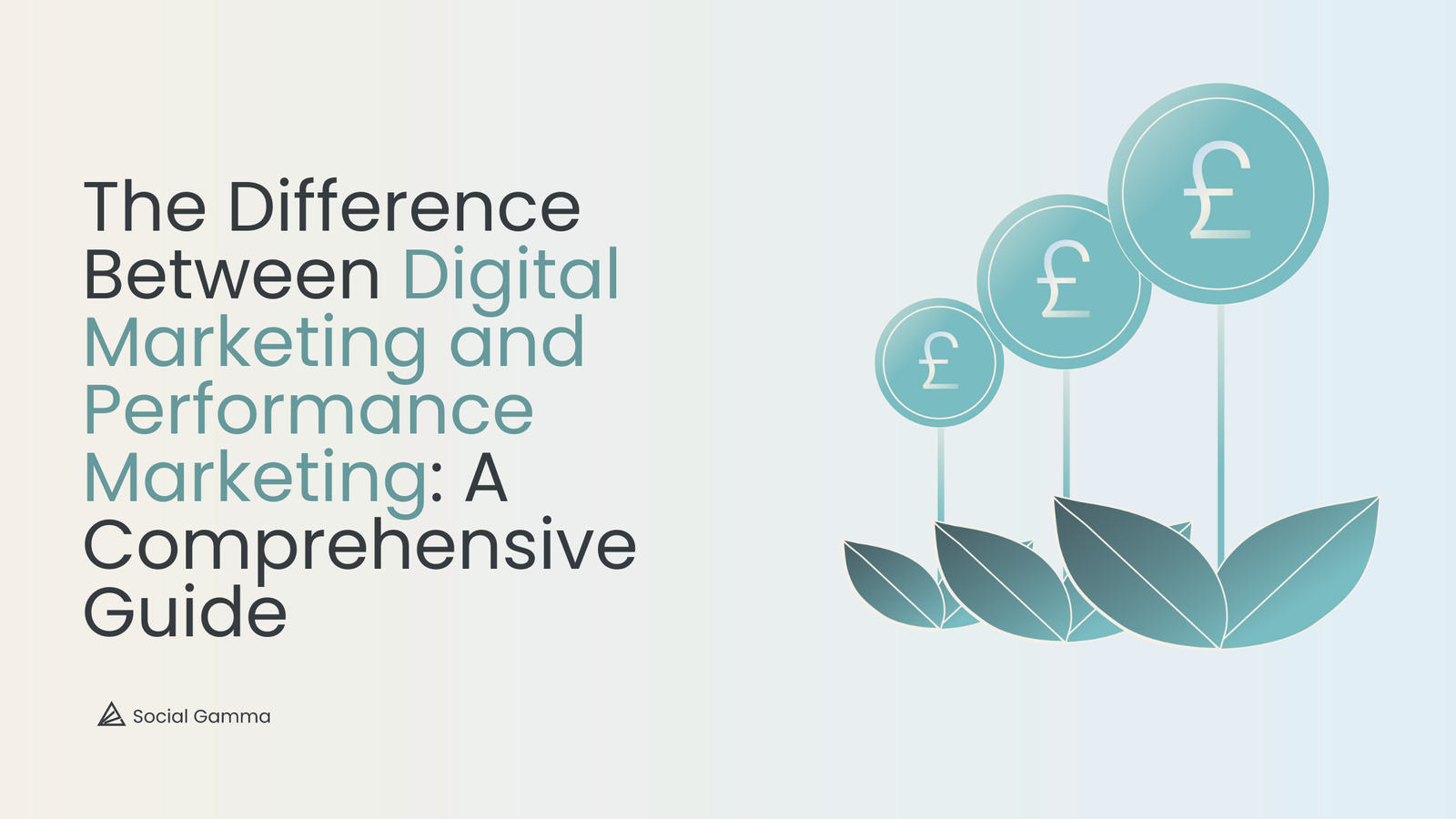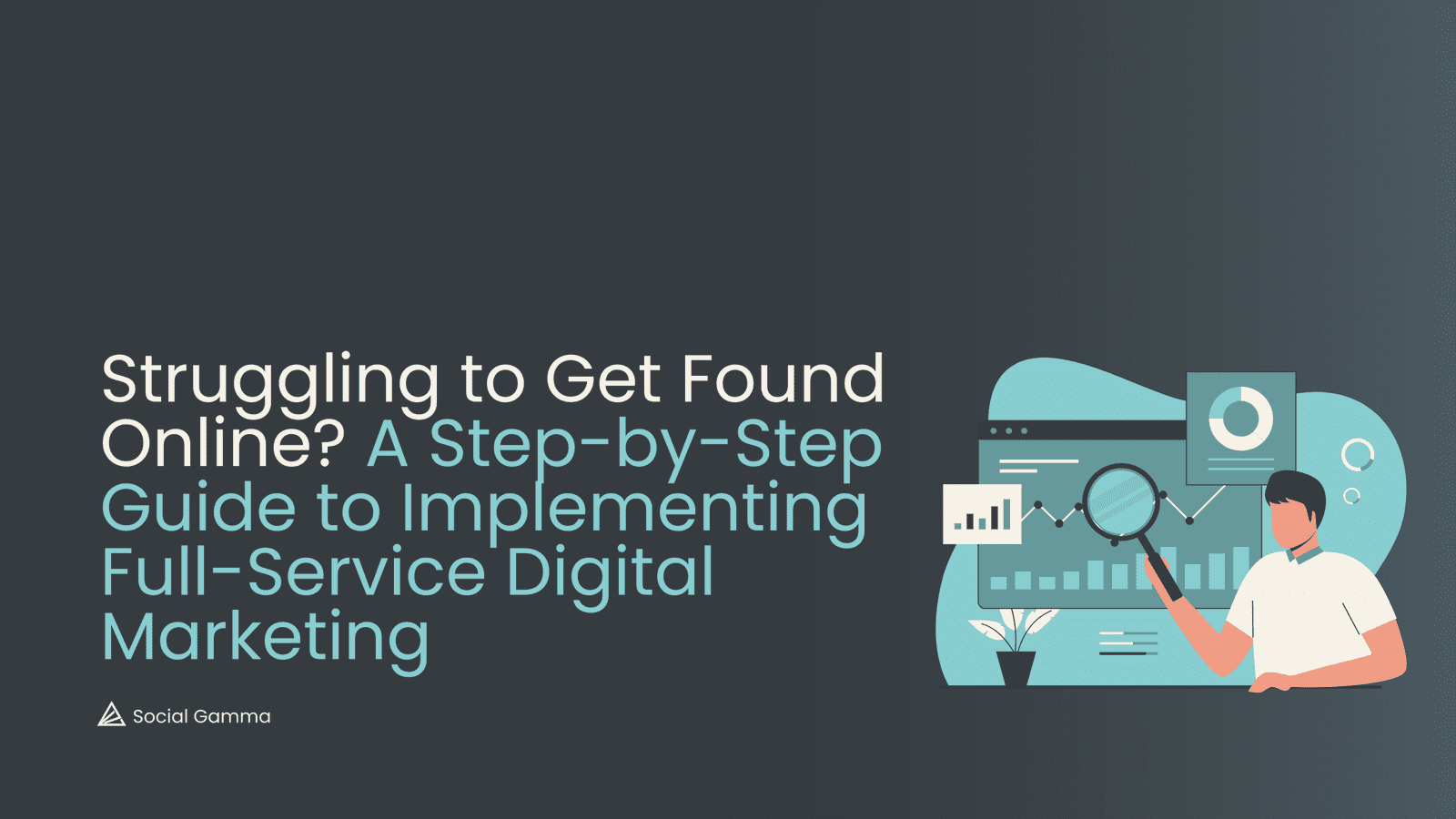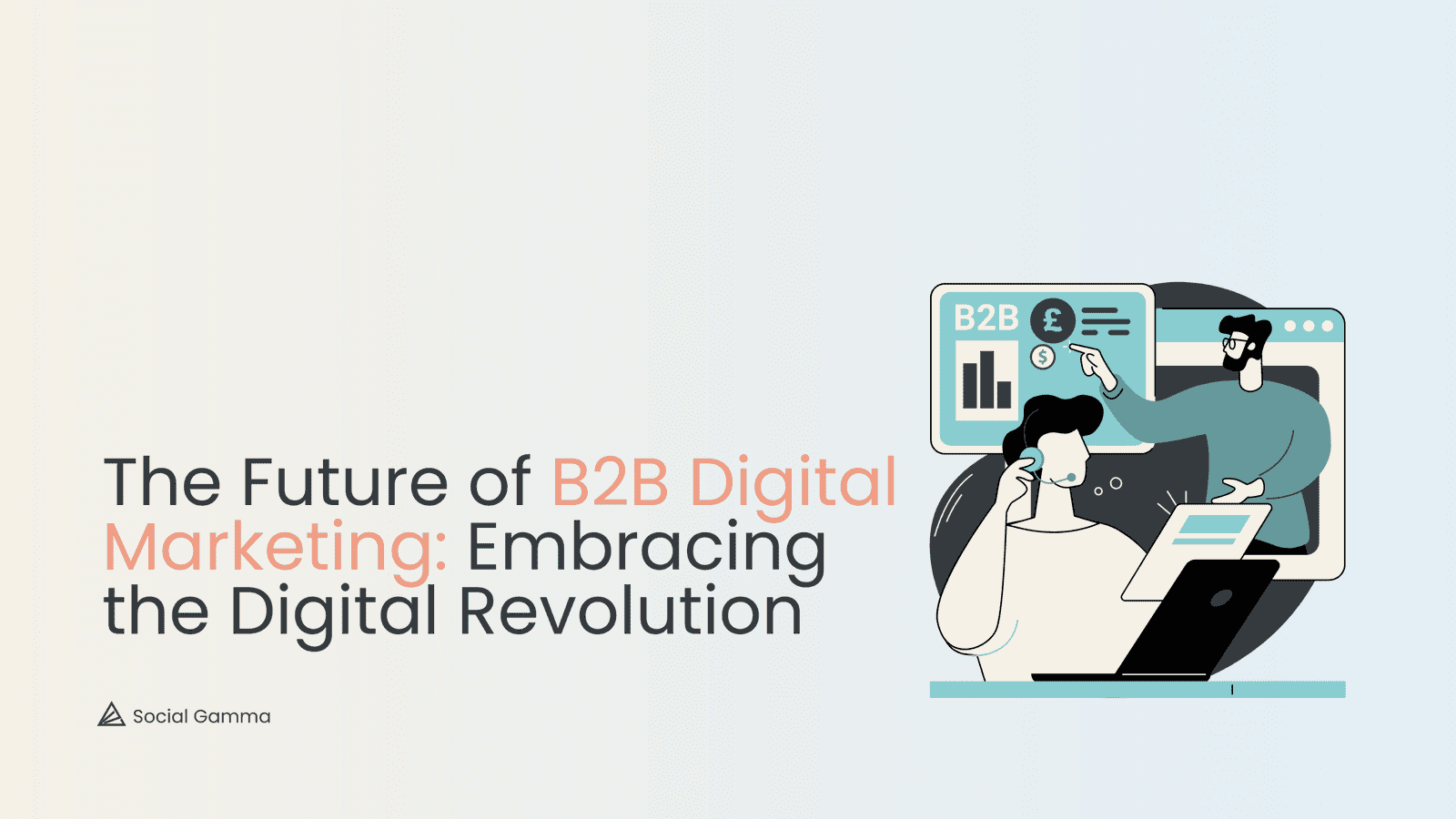Before going into more details, let’s have a look over these statistics:
- The global digital advertising and marketing market for 2024 is estimated at $667 billion and is projected to reach $786.2 billion by 2026.
- The U.S. digital advertising and marketing market is currently estimated at $460 billion.
- PPC returns $2 for every $1 spent—resulting in a 200% ROI.
- 49% of businesses say that organic search brings them the best marketing ROI.
Contents
- 1 What is Digital Marketing?
- 2 What are the Key Components?
- 3 What is Performance Marketing?
- 4 What are the main Components of Performance Marketing?
- 5 Why Understanding the Difference Matters?
- 6 Whom Each Approach Benefits?
- 7 Integrating Digital and Performance Marketing Strategies
- 8 Future Trends and Considerations
What is Digital Marketing?
Digital Marketing encompasses a broad spectrum of online strategies aimed at enhancing brand visibility, engagement, and conversion rates. At its core, Digital Marketing leverages various digital channels to reach and influence potential customers.
Definition: Digital Marketing refers to the utilization of digital platforms and technologies to promote products or services to target audiences. Its scope includes but is not limited to Search Engine Optimization (SEO), Search Engine Marketing (SEM), Content Marketing, Social Media Marketing, and Email Marketing.
What are the Key Components?
- SEO (Search Engine Optimization): Enhancing website visibility and ranking on search engine results pages (SERPs) through organic techniques.
- SEM (Search Engine Marketing): Utilizing paid advertising on search engines to increase website traffic and conversions.
- Content Marketing: Creating and distributing valuable, relevant content to attract and retain a defined audience.
- Social Media Marketing: Leveraging social media platforms to engage with users, build brand awareness, and drive website traffic.
- Email Marketing: Sending targeted emails to prospects and customers to nurture relationships and drive conversions.
Goals and Objectives: The primary goals of Digital Marketing include increasing brand awareness, generating leads, driving website traffic, and ultimately boosting sales and revenue.
What is Performance Marketing?
Performance Marketing is a results-driven approach focused on maximizing ROI (Return on Investment). Unlike traditional marketing methods, Performance Marketing strategies are highly measurable and typically involve paying for specific actions, such as clicks, leads, or sales. What Niel Patel saying about
Performance Marketing.
A performance-based approach can help you directly evaluate your business performance, especially if you review the data regularly and leverage the results to adjust your campaigns.
Definition: Performance Marketing is a data-driven strategy aimed at achieving measurable results, such as leads or sales, by paying for specific actions taken by users.
What are the main Components of Performance Marketing?
- PPC (Pay-Per-Click) Advertising: Paying for ad placements on platforms like Google Ads or Bing Ads, where advertisers only pay when their ad is clicked.
- Affiliate Marketing: Partnering with affiliates who promote products/services and receive a commission for each sale generated.
- CPA (Cost-Per-Action) Marketing: Paying for a specified action, such as form submissions or app downloads.
- Retargeting and Remarketing: Re-engaging with users who have previously interacted with a website or app, increasing the likelihood of conversion.
Why Understanding the Difference Matters?
Differentiating between Digital Marketing and Performance Marketing is crucial for businesses to allocate resources effectively and achieve desired outcomes.
- Focus on Metrics and ROI: Digital Marketing focuses on building brand awareness and engagement, whereas Performance Marketing emphasizes measurable results and ROI.
- Payment Models: Digital Marketing often involves upfront costs for ad placements, while Performance Marketing employs payment models based on specific actions taken by users.
- Targeting and Personalization: Digital Marketing targets broad audiences based on demographics and interests, whereas Performance Marketing allows for precise targeting and personalization to maximize conversions.
- Flexibility and Adaptability: Digital Marketing strategies require continuous monitoring and adjustments, whereas Performance Marketing allows for real-time optimization based on performance metrics.
Whom Each Approach Benefits?
Digital Marketing is beneficial for businesses looking to establish a strong online presence, build brand awareness, and engage with a wide audience. On the other hand, Performance Marketing is ideal for businesses seeking measurable results, such as lead generation or sales, and are willing to pay for performance.
Integrating Digital and Performance Marketing Strategies
Businesses can maximize their marketing efforts by integrating Digital and Performance Marketing strategies for a comprehensive approach.
- Recognizing Overlaps and Synergies: Identifying areas where Digital and Performance Marketing strategies can complement each other to achieve overarching business goals.
- Leveraging Combined Approaches for Maximum Impact: Implementing integrated campaigns that leverage the strengths of both disciplines to drive targeted traffic and maximize conversions.
- Best Practices and Tips: Offering practical advice for businesses looking to integrate Digital and Performance Marketing strategies effectively.
Future Trends and Considerations
As technology continues to evolve, it’s essential to stay abreast of emerging trends and tools shaping the future of Digital and Performance Marketing.
- Evolving Landscape of Digital and Performance Marketing: Exploring the latest developments and shifts in consumer behavior, technology, and industry trends.
- Emerging Technologies and Tools: Highlighting emerging technologies such as AI-driven personalization, voice search optimization, and immersive experiences shaping the future of marketing strategies.
- Predictions for the Future: Offering insights and predictions on how Digital and Performance Marketing will evolve and adapt to meet the changing needs of businesses and consumers.
In conclusion, understanding the differences between Digital Marketing and Performance Marketing is essential for businesses to develop effective marketing strategies tailored to their goals and objectives. By leveraging the strengths of both approaches, businesses can achieve sustainable growth and stay ahead in today’s competitive digital marketplace.
Book free consultation for result oriented digital marketing strategies now. Social Gamma is an award winning Digital Marketing agency in London for B2B and B2C industries.


